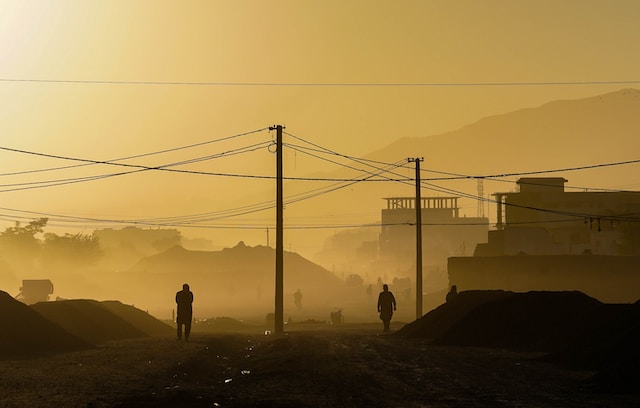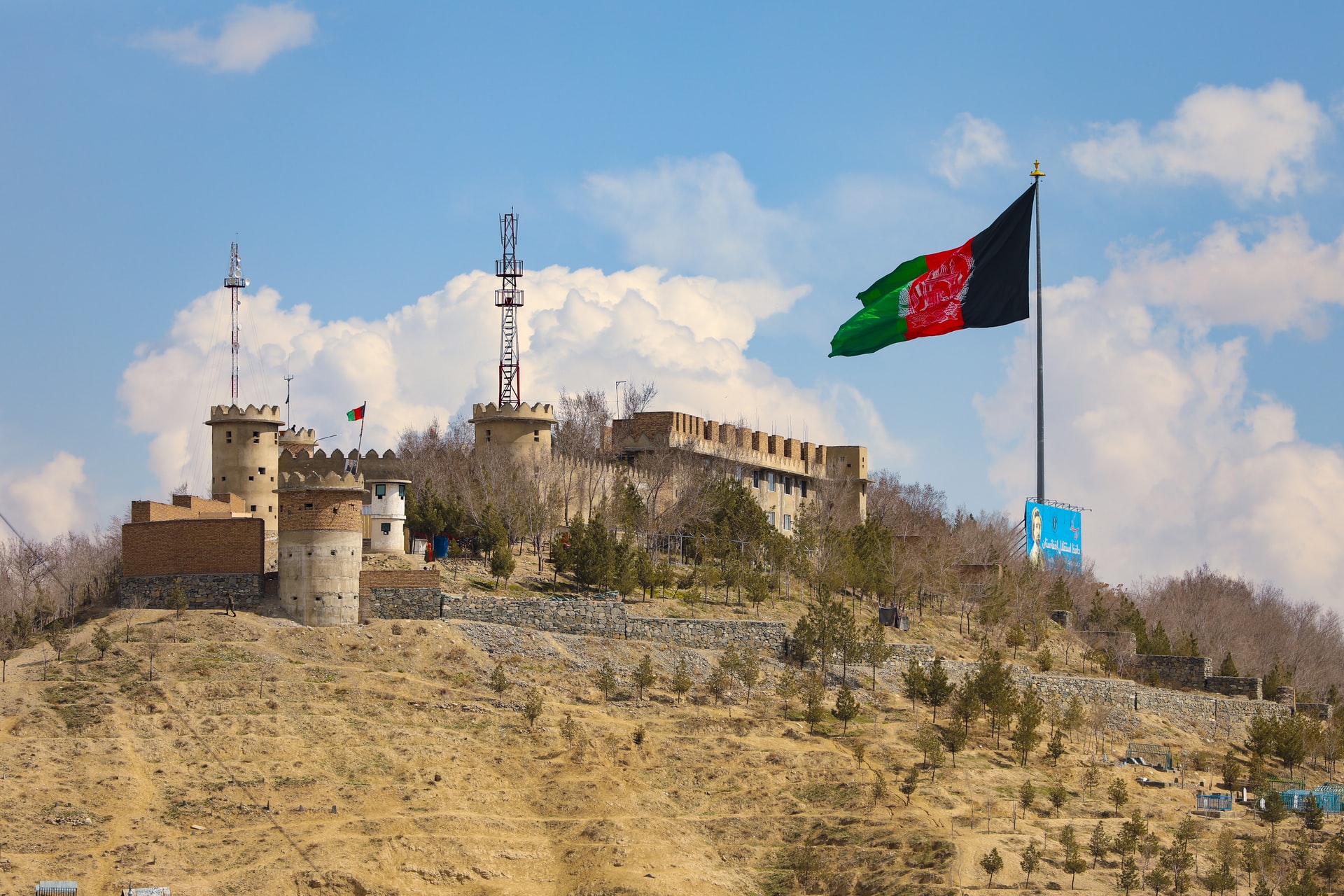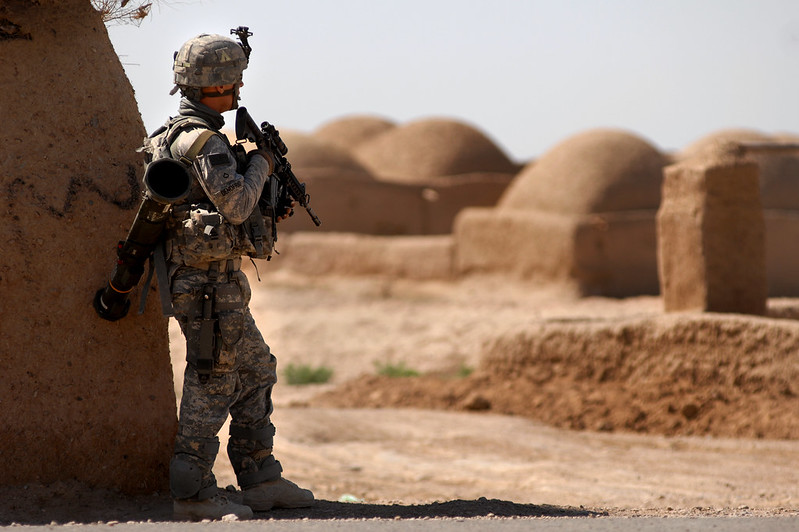As Afghanistan walks through the second year of Taliban rule, and world powers and global media move on to other things, what is the future of the political state, the Emirate, in Afghanistan? The Taliban maintain that they have learnt from the mistakes of their earlier tenure in the 1990s, but are they able to create any state apparatus of governance? Antonio Giustozzi analyses their performance since August 2021, and the road ahead.
More than 15 months on from the Taliban’s ascent to complete control of Afghanistan in August 2021, the Taliban’s Emirate shows no sign of collapsing. If anything, it seems to be slowly consolidating itself. As with the Iranian Revolution of 1979 turning ‘Islamic’, many observers and commentators can hardly believe that a clerical regime, in Afghanistan’s case even more conservative than the Iranian one, can survive and develop a state system of its own, based on principles and political technologies of its own. This begs the question of whether the Taliban have just been lucky so far, or whether there is some merit in the Emirate’s trademark state-making techniques? Have they managed to outlive expectations simply by exploiting the disarray amongst their numerous enemies and the desire of neighbouring countries not to face state collapse in Afghanistan? Or is there something more concrete and durable in their approach to remaining in power?
Perhaps the biggest success of the Taliban so far has been in the collection of taxes and customs levies. Despite the state of economic collapse, the Taliban are projected to collect around US$2 billion this year, which is in line with the revenue of the Islamic Republic, even if imports have shrunk dramatically. Tax collection during their first year in power relied on unsustainable tactics (demanding immediate payment for taxes long overdue), but signs of partial economic recovery from spring 2022 onward suggest that the Taliban might sustain revenue levels even once these extraordinary means are no longer viable. It has also been argued that the Taliban have eliminated leakage in customs collection, which had been a major problem affecting the previous regime; it is probably excessive to assert that leakage is completely gone, but it seems clear that in any case it has been greatly reduced. This is to a large extent a function of the fact that the Emirate has been able to assert its control over its borders, in stark contrast to the failures of the Islamic Republic.
Official data from the Emirate show a massive increase in exports in the first half of the current year (April-October 2022), reaching a record US$1.085 billion. The inability to generate significant exports had been another obvious failure of the Islamic Republic, which relied almost exclusively on cash handouts by donors. The rise in exports is driven by the need of Afghan producers to raise money, but the fact that the roads are now safe and secure is likely to be a major contributing factor. Although there are no reliable statistics on crime, the Taliban seem to at least have secured the roads.
The Taliban’s ‘low tech’ approach (in terms also of political technologies) has often been derided, but in fact it has so far proved to be one of their key advantages. They can run the most basic functions of the state (security, law enforcement, tax/customs collection, and foreign relations) despite the very limited availability of skilled personnel and funds. The previous regime, the Islamic Republic of Afghanistan, would not have stood together with the same level of revenue the Taliban have, even if the Taliban had not been trying to bring it down militarily.
If the Taliban appear to have got something right, it does not however mean that their regime is fully established, and that they are ready yet to go down in history as a rare example of low-budget state-makers. To begin with, a consensus has not yet consolidated around the new regime’s ideology. Their southern leaders, supported by a group of hard-core ulema (theologians), are trying to assert a largely ultra-conservative approach, inspired by Pakistani-style Deobandism, but within the Taliban exist large pockets influenced by the Muslim Brotherhood, Sufism and even some Salafi-leaning members of the Ahl-e Sunnat wa Jamaat. It is clear that the ultra-conservatism of the core circle of the ulema surrounding the leadership has rather anti-developmental implications for the long run, more so than the more modernist Muslim Brothers. The discrimination against women is only the most obvious example . The ultra-conservative ulema usually have little or no education other than a religious one and the same applies to almost all top Taliban leaders. Compared to an average/ mediocre politician in the West, or of the surrounding countries, their ability to even understand any technical matter in the affairs of the state is extremely limited. They seem to be increasingly relying on advisers selected among the officials of the previous government, but it is questionable whether this is going to be enough.
The Taliban are also still in the process of adapting their ‘party’ structure to the needs arising from being back in power. The old structure, based on local shuras (councils), is being superseded by networks of ulema, gathered together in provincial ulema councils and tasked to act as the chain of transmission between the leadership and local communities. For instance, they are being tasked to report on the functioning of the provincial and district administrations. Can these councils fight the dysfunctionalities of the Afghan state and provide the leadership with something like the ‘pulse of the country’? It is too early to say.
Even in an ultra-conservative context, enforcing the rule of law rigorously would have beneficial impacts in terms of economic growth. The Taliban are, however, still struggling in this field as their rank-and-file are still engaging in revenge attacks that started immediately after their coming to power in August 2021. Although, given the length of the war and the extent of Taliban casualties, revenge-taking has not been particularly widespread, it is still diffused enough to instil a sense of insecurity in a large portion of the population which was linked to the previous regime. Similarly, in the repression of the various insurgencies that oppose the Emirate, arbitrary executions and punishments are still commonly used.
With the recent decision to phase in the Hudud punishment, the Emirate appears to have given up on its attempts to secure international recognition, at least for now. Perhaps, following the international outcry over the closure of high schools for girls, the Emirate’s leadership realised that recognition was not a realistic prospect. What Haibatullah, the Amir of the Taliban, actually thinks is not clear, but it is obvious that he trails the hard-core ulema of the Taliban. Perhaps he feels that he needs their support to consolidate his leadership in the face of criticism from within the ranks of the Taliban, and also from more extreme groups (like the Islamic State). As long as the ulema remain the core supporters of Haibatullah, nobody from within the organisation can seriously threaten his hold.
Nobody knows whether the leadership will take a different path in the future, once it overcomes various challenges but, for now, the lack of international recognition poses some obvious developmental issues: who is going to sign large infrastructural or mining contracts with a government almost nobody recognises officially?
Even at the regional level, where hardly any government raises concerns about the education of girls or the rule of law, the Emirate cannot obtain diplomatic recognition because it refuses to incorporate elements close to the governments of Iran, Pakistan, Russia, Uzbekistan and others. Although all these governments trade with the Emirate and offer some low-scale help, in the long term Afghanistan will need fully fledged diplomatic relations to recover economically, and develop.
As already hinted above, there is also a sense that the internal unity of the Taliban is not guaranteed and that power struggles may erupt in the future, even if over the last three months the southern leadership seems to have consolidated its hold and to have brought in line factions such as the Haqqani network and others. Even if the various insurgencies carried on by the Islamic State and by supporters of the previous regime do not, for now, seem to threaten the Emirate, there is still a sense of precariousness that does not encourage investing in the economy or in the regime.
In spite of all these weaknesses, the Taliban seem to have a fair chance of succeeding in establishing a fully-fledged state apparatus. They are definitely working to re-establish the state monopoly of the means of coercion, which eluded Afghan governments for 40 years, after it was lost in the late 1970s. They are also making good progress in centralising taxation. Where they are struggling is with delivering a political deal or élite bargain, that would ensure long-term stability. Can they successfully wipe out all the old national political élites, co-opt the bulk of the economic élites, and establish working relations with a critical mass of sub-national élites? So far, their weakest spot here has been that they are seriously struggling with the ethnic minority élites.
The Taliban look even less credible as state-builders. Their ideological rigidities are a major obstacle on the path to international recognition, which in turn limits opportunities for investment in the country’s economy. At the moment, they are poorly positioned to move the economy beyond the recovery stage. They do have a degree of internal diversity that could still lead to future changes in direction, but there is no guarantee that this will happen.
These two basic considerations, the Taliban’s relatively successful state-making efforts and their less-than-promising prospects at state-building, give us some hint of what might have been wrong with ‘liberal state-building’ in the recent past, in Afghanistan and beyond. Leaving aside here the issue that not all that is portrayed as ‘liberal state-building’ is actually so, one major issue is that ‘state-making’ and ‘state-building’ are often conflated together and edulcorated terminology such as ‘state fragility’ is used to avoid discussing state-making as such. That might be because if the need to deal with state-making before proceeding with state-building was acknowledged, it would be difficult to deny the relevance of the establishment of a monopoly of coercive violence, of the centralisation of taxation, and of élite bargains. The dirty (but foundational) work of state-making has to be completed before state-building can crack on. One implication is that the types of actors who can deliver state-making are often not the same who can deliver state-building, and vice-versa.
For now, the Taliban’s weakness in state-building matters less than their relative proficiency in state-making. The countries surrounding Afghanistan have already had to grudgingly and discretely acknowledge that there are at present no alternatives to the Taliban for somehow holding Afghanistan together. This applies even to Iran and Russia , both of which had very poor relations with the Taliban during the first Emirate (1996-2001). Indeed, the US themselves seem to be coming to the same conclusion (despite having fought the Taliban until 15 months ago), as the Biden administration now says it does not support any armed opposition to the Taliban.
The views presented here are those of the author and not of the ‘South Asia @ LSE’ blog, LSE South Asia Centre or the London School of Economics and Political Science.
Banner image © Mohammad Hussaini, ‘Kabul, Afghanistan’, 2021, Unsplash.







